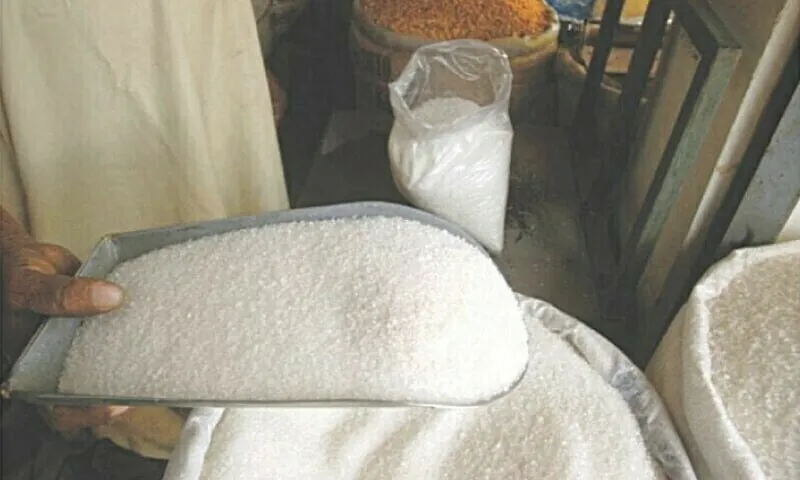After weeks of volatility in vegetable markets, sugar has emerged as Pakistan’s next major crisis, with retail prices once again touching Rs200 per kilogram and government-rate sugar nearly vanishing from shelves across major cities.
Traders report that the official rate of Rs181 per kg has become largely irrelevant, as no retailer in Rawalpindi or nearby areas is selling sugar at that price. In the wholesale market, a 50-kg bag now costs Rs10,000, marking a sharp increase from previous weeks.
Transport Costs Add Fuel to Price Surge
The fresh spike has been compounded by a 25% rise in transport fares for goods carriers operating between Karachi, Rawalpindi, and Peshawar. Traders warn that higher freight costs will further push up retail prices in the coming days, especially if the sugarcane crushing season faces additional delays.
Crisis Dominates National Assembly Committee Meeting
The situation came under discussion during the latest session of the National Assembly Standing Committee on National Food Security and Research, where Federal Minister Rana Tanveer Hussain briefed lawmakers.
“We have decided not to pressure sugar mills to begin crushing,” the minister said, adding that each mill may start operations at its own discretion.
“Whether in the first week of November or by the twentieth, it’s entirely up to them,” he told the committee.
Tomato Prices in Pakistan Soar to Record Highs, Leaving Consumers Struggling
IMF Agreement Restricts Price Controls
Rana Tanveer explained that under the IMF agreement, the government is barred from fixing procurement prices for sugarcane.
He noted that last year, the crop’s price ranged between Rs400 and Rs700 per maund, and that Punjab’s sugarcane would be ready for crushing by November 1.
“Mills prefer late crushing to maximise sugar recovery,” he added.
Government Accused of Protecting Mill Owners
According to sources, the federal government had earlier reached an understanding with sugar mills to start crushing in the first week of November, with the agreement signed by Minister Rana Tanveer Hussain on the government’s behalf.
However, by choosing not to enforce that timeline, the government has effectively shielded mill owners’ interests, critics say, at the expense of farmers.
Agricultural experts warn that delayed crushing leads to weight loss and reduced quality in sugarcane, causing significant financial losses for growers. The delay also postpones the sowing of the next crop, creating a ripple effect through the entire agricultural production cycle.
Inflation Fears Deepen
Traders now caution that unless crushing begins on schedule, sugar prices may continue their upward climb, triggering another wave of inflation at a time when the public is already struggling with record food costs.















